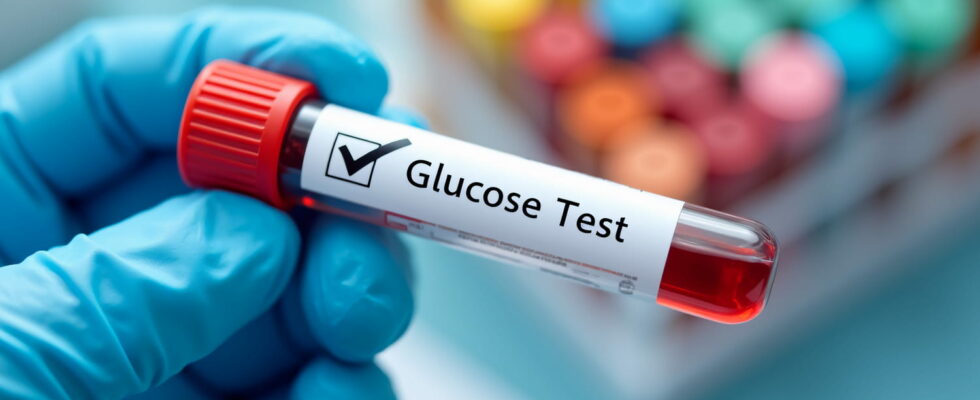Maintaining normal levels is important for overall health and to prevent diseases like diabetes.
Glucose is the main source of energy for the body’s cells. “It is particularly important for the brain, which depends exclusively on glucose for energy”explains Dr Léa Lescure, general practitioner at the Ris Orangis Medical Center (Ramsay Santé group). “In addition, muscles use glucose to produce ATP (adenosine triphosphate) during muscle contraction, which is essential for all physical activities, from simple movement to intense exercise.”
When glucose is not immediately needed, the body stores it as glycogen in the liver and fatty tissues. This glycogen can be quickly converted back to glucose when the body needs extra energy, for example between meals or during exercise. “When we are healthy, the body will automatically regulate blood glucose levels by secreting various hormones, continues the doctor. For example, when there is a large intake of glucose through food, insulin, secreted by the pancreas, allows the body’s cells to absorb glucose from the blood, thus reducing blood sugar levels. Another hormone: glucagon. It mainly works to increase blood glucose levels “particularly in fasting states or between meals when blood glucose levels tend to decrease.” Finally, adrenaline’s mission is to cause hyperglycemia (especially when the body feels attacked), by increasing the production of glucose by the liver.
The normal blood sugar level, also called blood sugar, varies depending on whether the person is fasting or not. On an empty stomach (after at least 8 hours without eating), the normal level is between 0.7 and 1.1 g/L. Two hours after a meal (postprandial blood sugar) or an oral glucose load, this level is less than 2 g/L. When sugar levels exceed normal values, there are health risks. Fasting (after at least 8 hours without eating), a level between 1.10 and 1.26 g/L indicates a risk of prediabetes or glucose intolerance; 1.26 g/L or more observed on two blood tests, there is diabetes. Diabetes is confirmed if two hours after a meal (postprandial blood sugar), the blood sugar level is 2 g/L or more observed on two blood tests. Conversely, we speak of hypoglycemia when the glucose level is below 0.7 g/L in the blood. “It’s a much rarer phenomenon because we have more hyperglycemic hormones.”
Maintaining normal blood sugar levels is crucial. “Above all, you must adopt a balanced diet and limit added sugars”recommends Dr. Lescure. Exercise regularly (5 times 30 minutes per week), eat regular meals, maintain a healthy weight, manage stress and monitor your blood sugar if you are at risk or have been diagnosed with diabetes.” Don’t hesitate to consult a health professional for personalized advice adapted to your situation.
